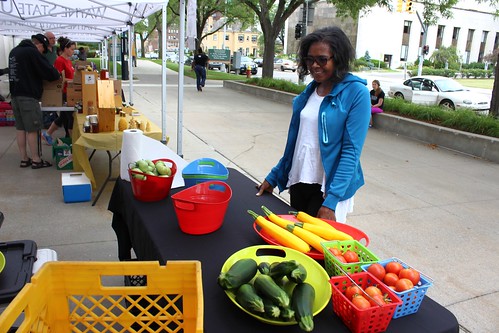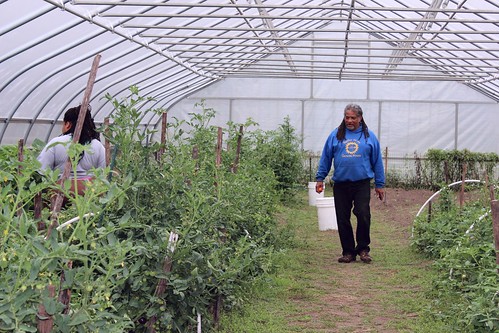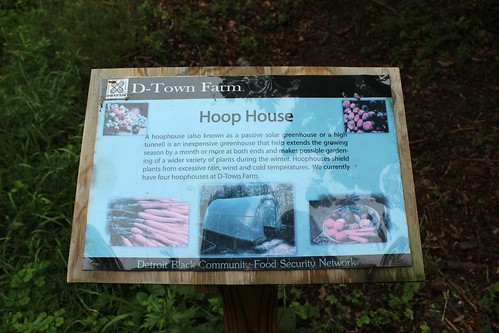

The Detroit Black Community Food Security Network’s D-Town Farm located in River Rouge Park produces farm-to-table produce using a conservation practice encouraged by USDA’s Natural Resources Conservation Service (NRCS). By using seasonal high tunnels, the practice helps to address food security in the city.
High tunnels, or hoop houses, conserve resources while serving as a source for local food. They are plastic-covered structures that enable farmers to have crops ready earlier or later in the season. In high tunnels, plants are grown directly in the ground, and the temperature is regulated by opening or closing the plastic curtain sides and doors on the ends.
While high tunnels have been a staple of farms across the country, NRCS is also striving to put them in urban areas, such as this one in downtown Detroit. The network is working to address food insecurity for Detroit’s black community through strategies which included the creation of an inner-city farm, which not only provides food but a place for people to learn about agriculture.
NRCS provided financial assistance on the network’s first seasonal high tunnel in 2010 through the agency’s Environmental Quality Incentives Program. As a result, the high tunnel helped to deliver an improved localized food system for D-Town Farm, which grows pesticide-free vegetables and herbs for local farmers markets.
“We realized that we had a lack of grocery stores and that people were buying food from gas stations or liquor stores,” said Kwamena Mensa, agriculture specialist for the Detroit Black Community Food Security Network.
High tunnels can perform when the growing season ends for outdoor crops. The houses lengthen growing seasons, in turn, benefiting producers in urban cities.
During a growing season, producers harvest vegetables and replant different crops within a high tunnel, as the demand for local food increases in Detroit. For example, a producer can plant a warm-weather crop at the beginning of the growing season, and after that crop is harvested, a winter crop gets planted. The farm’s cold-weather crops include kale, Swiss chard and beets; warm-weather crops include tomatoes, peppers and squash.
High tunnels also lead to healthier soil and enable farmers to plant multiple crops in a season while using fewer inputs.
Mensa said the farm benefited with a longer growing season and regulated temperature control for its growing environment. Because the first high tunnel proved effective that NRCS funded, the network implemented another high tunnel on its own.
Mensa said the farm has plans to update his high tunnels, with assistance from NRCS, by installing solar-powered fans, lighting and shutters that will enable growing all year. For example, hot air stresses plants, and a good ventilation system allows the heat to escape.

D-Town sells its produce twice a week during the summer and fall at farmers markets at Wayne State University and Rosedale Community Park.
Recently, Cynthia Brathwaite, a regular customer, patiently waited to select fresh organic produce from D-Town Farm while staff was setting up the booth. As Brathwaite looked at the produce, she talked to a D-Town Farm employee about how to prepare meals and what recipes she used.
She was told how to cook yellow squash with white onions, olive oil and garlic as part of a meal. In addition, she bought green tomatoes and jalapeno peppers to simmer in red cabbage. D-Town Farm veggies are always top quality, she said.
